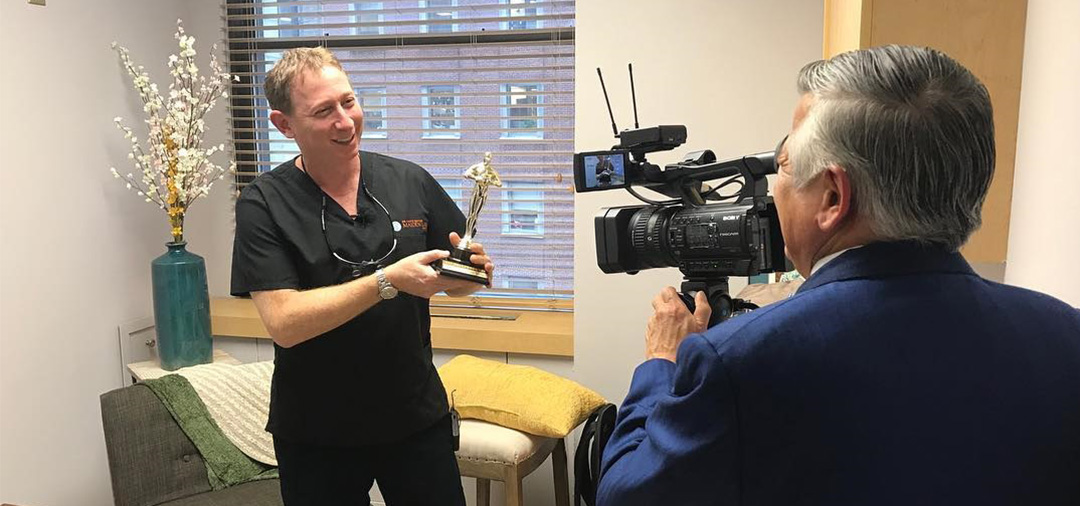Post-Op – Instructions
For all patients that have had oral surgery, please follow these instructions to speed up recovery and eliminate complications. Even though you may feel better, please wait a minimum of two hours after your surgery before eating food. This gives the anesthesia enough time to completely wear off so that you can feel what is going on inside your mouth. These instructions are just guidelines, and the office will provide complete instructions on recovery.

Root Canal
It is normal to expect soreness for several days after the procedure. Avoid chewing on the side that the procedure was performed, so you do not irritate the area allowing the temporary protective material to set fully. The doctor will most likely prescribe an antibiotic to treat any remaining infection that may be in your tooth. If any pain or swelling increases, any reaction to the prescribed medication, or if you lose the temporary crown (filling), call your dentist immediately.
Crowns and Bridges
Temporary crowns and bridges are installed before receiving the permanent one. These are not nearly as sturdy therefore you need to be extremely careful when eating and cleaning this area. Always brush this area gently and when flossing, be careful not to pull up, so you do not dislodge the temporary restoration. Please avoid any foods that could potentially lift the temporary.
There is a possibility of some tenderness and sensitivity after the placement of the temporary and or the permanent restoration. This is acceptable and will subside after the healing is complete on the soft tissue. You may use a warm rinse of salt water and take Tylenol or Advil for the pain.
Upon placement of the permanent crown or bridge, you may feel slightly awkward for several days. This will go away as your mouth adjusts to the tooth, however, if your bite feels abnormal in any way, let your dentist know immediately, so they can make the necessary adjustments. You should care for your new crown or bridge the same way you care for your other teeth by brushing and flossing regularly.
White Fillings (Bonding)
Once the anesthesia wears off, there might be sensitivity to the teeth and the area around. Try to avoid hot and cold for the next several days. Continue your regular hygiene, and your teeth will be normal in just a few days.
Scaling and Root Planing
Your gums will be irritated and sore for several days after this procedure. Rinse your mouth with warm salt water 2-3 times per day. Mix (1 tsp. salt/8 oz. of water) and rinse your mouth gently. This will help cleanse the area and relieve the pain while speeding up the recovery. You may brush and floss after the procedure, however, you should be careful and gentle at the same time as to not irritate the area. If swelling or stiffness should happen, you can place a cold compress on the area and take Tylenol or Advil for any pain. Avoid any chewy or hard foods for 2-3 days. If you continue to experience pain or swelling after 2-3 days contact your dentist immediately.
Veneers
Temporary restoration takes place before receiving your permanent veneers. These are not nearly as sturdy, and care should be considered when eating and cleaning. Brushing should be done gently and when flossing, do not pull up because you may dislodge the temporary. Avoid chewy sticky or hard foods while the temporary is still in.
You may experience some irritation and sensitivity during the temporary or placement of the permanent. This is normal and will go away once the soft tissue has completely healed. You may use a warm rinse of salt water and take Tylenol or Advil for any minor pain.
When the permanent veneer is placed, it may feel a little awkward for several days. Once your mouth adjusts to the new tooth in less than a week, it will feel natural. Please contact us immediately if your bite feels abnormal or you have continuous pain. Please take care when flossing and brushing and make sure you are gentle and pay close attention to the new veneer and the gum line.
Extractions
We recommend that you are driven home by a friend or family member and then rest after the surgery. Upon arriving home, while resting, do not lie flat as this will prolong the bleeding. Use a pillow to prop up your head when lying down. Bleeding is common at the extraction site for a little while after. You will be given gauze that is applied to the extraction site that will have to be changed when it becomes saturated. If bleeding should continue after a 24-hour period, you should call your dentist immediately. Your dentist will most likely prescribe pain medication for you to take as directed. You may use an ice pack for pain and swelling that may occur. The dentist may also provide a cleaning solution for you to use on the extraction site.
Your food intake for the next several days will be limited to soft foods such as:
- Soups without chunks
- Mashed potatoes
- Yogurt
- Pudding
- Ice Cream
- Other soft foods that do not require chewing
While drinking any liquids do not use a straw as this could cause the clotting and sutures to loosen or become dislodged. Do not smoke or chew tobacco. Call the dentist immediately if you have any prolonged bleeding, pain or discomfort.
Experience cutting-edge dental care in the New York city.
Feel Complete with a Beautiful Healthy Smile

